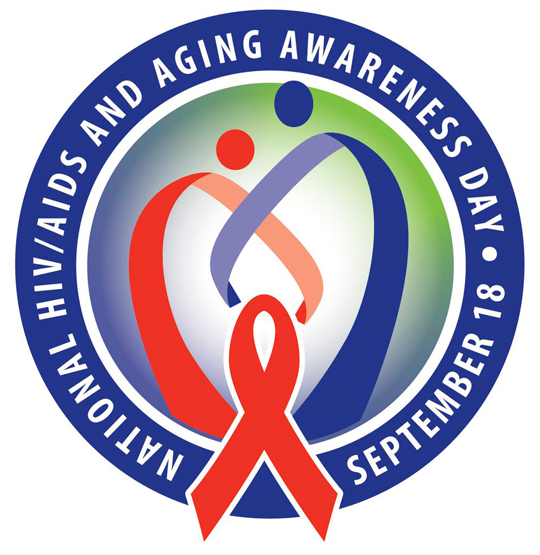Three and Three for National HIV/AIDS and Aging Awareness Day 2018

September 18 is National HIV/AIDS and Aging Awareness Day 2018 (NHAAD), and it brings attention to the growing number of people living long, full lives with HIV, and to their health and social needs. With this annual observance, we present three facts from our federal colleagues at the Centers for Disease Control and Prevention and three insights from staff members at The AIDS InstituteExit Disclaimer (the community lead for this observance).
3 Facts for NHAAD
These facts from CDC put HIV among older adults into context:
- In 2014, an estimated 45% of Americans living with diagnosed HIV were aged 50 and over.
- An estimated 17% (6,725) of the 39,513 HIV diagnoses in 2015 were among Americans aged 50 and older, according to CDC.
- Compared with younger people, people over the age of 55 who are living with HIV are more likely to know their HIV status and to be virally suppressed.
3 Insights for NHAAD
Staff from The AIDS Institute shared thoughts about NHAADExit Disclaimer with us.
HIV.gov: Why does this day matter to you?
Sean McIntosh, Research Coordinator, said: “It is a reminder of how far we have come in the fight against HIV. The words aging and HIV were never mentioned together but now with the work we have done, it is very possible to live a long healthy life with HIV. Also, NHAAD is a reminder for our aging friends to get tested and know their HIV status.”
HIV.gov: How does digital communication fit into your work?
Kristofir Napier, Advocacy and Communication Coordinator, said: “Digital communication is critical in our work because in this day and age everyone is using technology to access information. Whether it is online newspapers, social media platforms, or just advertisements on websites, everyone is absorbing information through digital communication.”
HIV.gov: What’s one thing you’d like to tell our readers about how they can help to respond to the needs and experiences of older adults living with HIV?
Michelle Scavnicky, Associate Executive Director, told us: “Having a voice helps older persons living with HIV feel empowered and using that voice to elevate a strong message is very powerful. One simple message to help individuals and organizations respond to the needs and experiences of older adults living with HIV is to listen. Listen to their voices.”
More Info
To learn more about National HIV/AIDS and Aging Awareness Day 2018 and other observances, visit the Events section on HIV.gov. For more about HIV prevention, care and treatment, visit the HIV.gov Basics section. For more about using digital communication for this observance and upcoming events, visit our Digital Tools section, check out this videoExit Disclaimer or sign up for Virtual Office Hours.